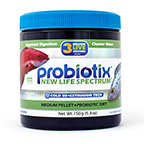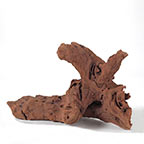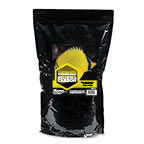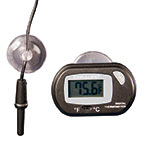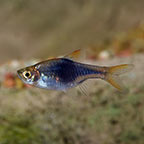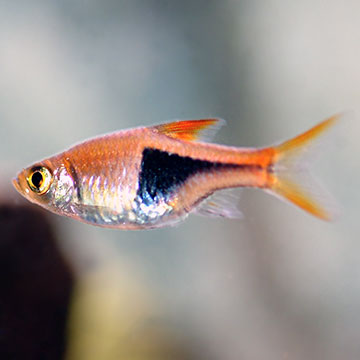
Additional locales and sizes may be available!
Additional locales and sizes may be available! Email me when availableQuick Stats
What do these Quick Stats mean? Click here for more information
What do these Quick Stats mean? Click here for more information
Overview
The Harlequin Rasbora is easily identified by its characteristic black "pork chop" shaped patch. Males will have a beautiful lustrous copper/orange body while females will be exhibit a more golden coloration . The distinguishing triangular patch begins near the dorsal fin and comes to a point near the base of the caudal fin. The patch on the female Harlequin Rasbora is slightly rounded at the bottom with an extended tip. In contrast, the patch on the male Harlequin Rasbora is straight. The female Harlequin Rasbora is also larger than the male. Juveniles will darken as they mature.
The Harlequin Rasbora does best in an established planted aquarium with open areas for swimming. The Harlequin Rasbora should be kept in schools of 8-10 individuals and housed with other small, peaceful fish. The mild nature of the Harlequin Rasbora makes it a great community fish.
Rasbora heteromorpha generally spawns on the undersides of broad-leaved plants. A breeding tank with shallow, warm, acidic, soft water with broad-leaved plants should be set up. To encourage spawning, pair a young (9-12 months old) female Harlequin Rasbora with a two-year old male and offer live food items. After spawning, remove the parents and keep the aquarium dark until the eggs hatch (after about 24 hours). Feed the fry infusoria.
An omnivore, the Harlequin Rasbora does well on a diet of prepared flake food, as well as freeze-dried bloodworms and tubifex.
Approximate Purchase Size: 1/2" to 1"



